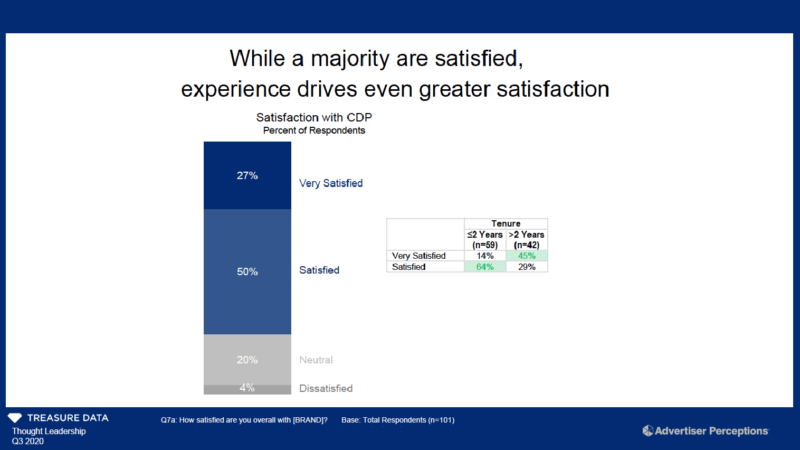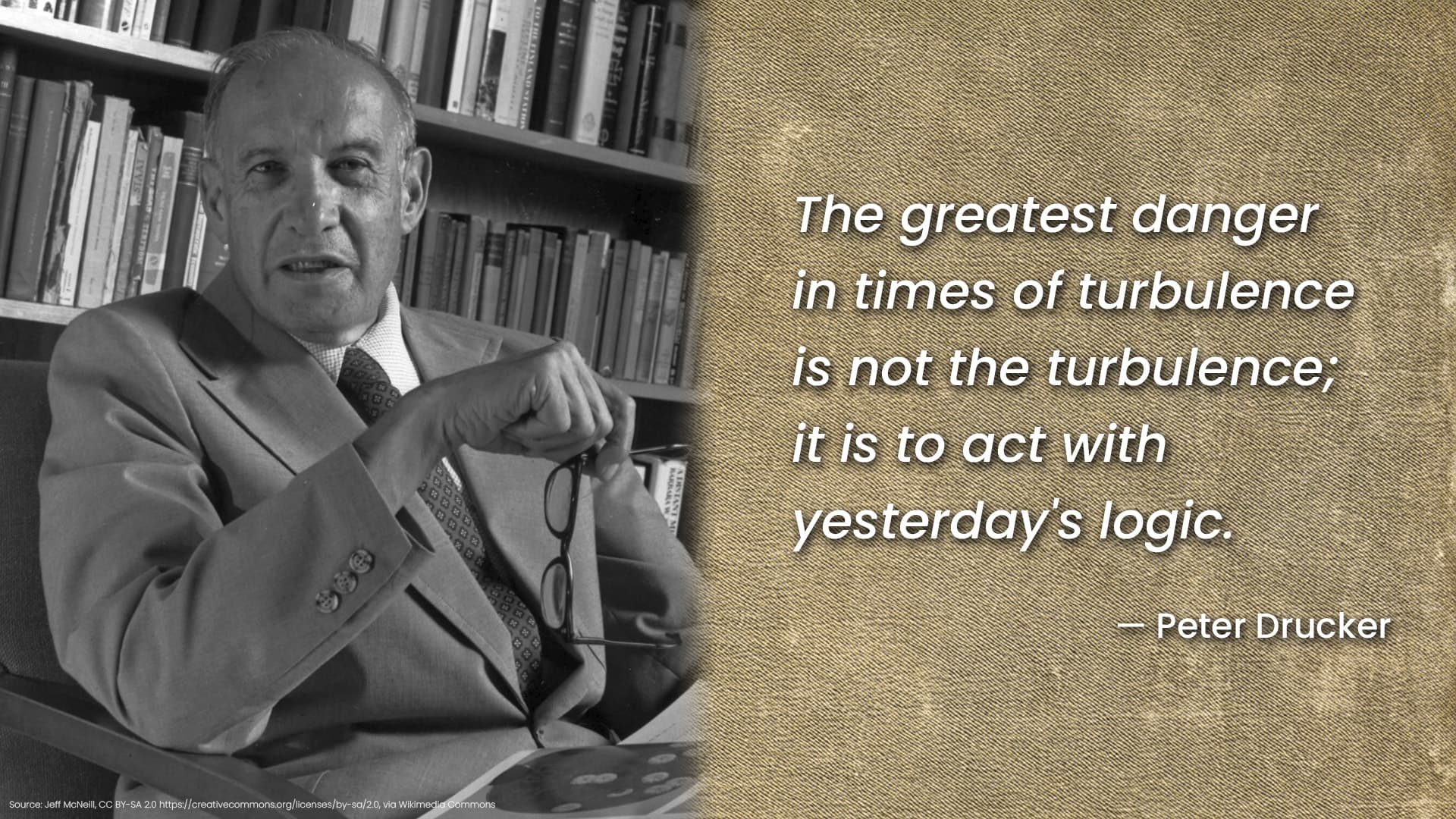CDPs “very important” for getting value out of customer data, say 58% of marketers surveyed
A recent study fielded by Advertiser Perceptions for Treasure Data provides myriad insights on how marketers are using Customer Data Platforms.

Marketers currently using Customer Data Platforms (CDPs) consider these platforms nearly as valuable as CRMs and DMPs when it comes to wringing value out of their customer data. That’s according to a survey of U.S. marketers using CDPs in companies with more than $500M of revenue annually, which was undertaken in July and August by Advertiser Perceptions and sponsored by Treasure Data.
Treasure Data CMO Tom Treanor and Stuart Schneiderman from Advertiser Perceptions shared the survey results in a session at the MarTech conference recently.
The results provide very interesting insights into how marketers currently using CDPs view the technology: what they’re relying on it for, how it fits into their stacks and what value it provides.
CDP use cases
The most common use cases for CDPs, the survey found, were to personalize digital campaigns (63%), to unify customer data (63%), and to assist in mapping out the customer journey/experience (60%). Not far behind were to report on campaign performance and ROI (59%), to build and maintain targetable audience segments (58%), and to extract actionable customer segments (56%).
“CDP is on the hook for a lot of various critical use cases,” noted Schneiderman. “Certainly one of the critical use cases is data unification, bringing together customer data from various sources and platforms. And then once you get beyond that critical use case, then it’s about driving better sales communication, aligning with customer journeys, greater reporting and measurement and also driving advanced insights.”
CDP benefits
When it comes to meeting those critical use cases and driving needed improvements, the respondents found CDPs provided the most improvements when it comes to organizing customer data and allowing it to be acted upon.
The study found that most users were “satisfied” or “very satisfied” with their CDPs, and Schneiderman noted that breaking down the data further revealed that marketers who’d been using their CDP for more than 2 years were more likely to report being “very satisfied.”
“It’s taking up to that two-year mark to really drive the strongest of satisfaction versus just being satisfied,” said Schneiderman. He and Treanor suggested that it may take a certain time commitment for marketers to learn how best to use the technology and begin realizing the greatest value from the solution.
Schneiderman said the study then sought to determine what, other than the length of usage time of CDPs, was driving these highest satisfaction levels.
“What’s striking, notes Schneiderman, “is that those who were able to make significant strides in data ingestion across multiple sources are much more likely to be very satisfied. Those who are opening that data up to other systems are much more likely to be very satisfied.” Those aligning their data to the customer journey and doing more cross-channel customer journey orchestration were also more likely to be satisfied.
CDP efficiencies
One benefit businesses may be seeking to realize — eliminating staffers that are currently manually manipulating that data — may not be realistic. But the survey respondents did say their current employees are able to be more efficient.
Watch the on-demand version of the MarTech session for more.
Opinions expressed in this article are those of the sponsor. Search Engine Land neither confirms nor disputes any of the conclusions presented above.







